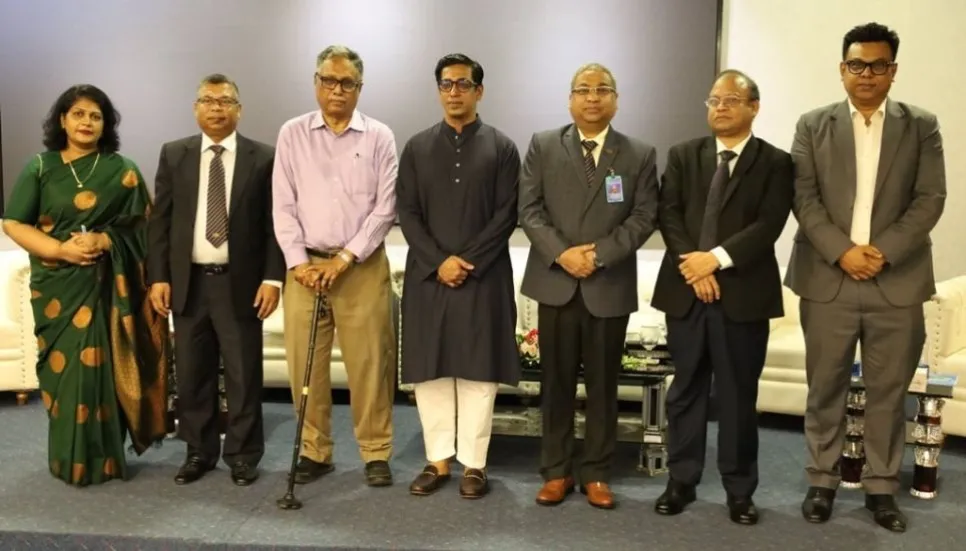
Climate change is not science fiction; it is a harsh reality impacting the entire world, with consequences becoming more severe. As the eighth most climate-vulnerable country, Bangladesh must focus on trans-disciplinary cooperation to deal with these effects.
In terms of the global negotiation process, Bangladesh should immediately clarify its position. High carbon emitters will not provide funding if Bangladesh cannot negotiate its needs effectively. This requires building capacity, technology and compliance mechanisms.
Speakers shared these views at a national seminar titled “Bangladesh Climate Resilience and Financing: Challenges, Opportunities and Way Forward,” organised by the Bangladesh Institute of International and Strategic Studies (BIISS) in Dhaka’s Eskaton on Monday.
BIISS Chairman Ambassador AFM Gousal Azam Sarker chaired the session, while BIISS Director General Major General Md Abu Bakar Siddique Khan delivered the welcome remarks.
Lawmaker Nahim Razzaq, convenor of Climate Parliament Bangladesh and member of the Parliamentary Standing Committee on the Ministry of Foreign Affairs, attended the seminar as the chief guest. Dr Ainun Nishat, professor emeritus at BRAC University, was the special guest.
Keynote papers were presented by BIISS Senior Research Fellow Dr Sufia Khanom, IUCN Country Representative and Bangladesh Institute of Planners (BIP) General Secretary Shaikh Muhammad Mehedi Ahsan and Additional Secretary of Finance Division Dr Mohammad Abu Yusuf.
Dr Ainun Nishat said, “Many of us are unaware of the ongoing global changes. The ocean is warming, creating ideal conditions for more frequent cyclones. The likelihood of short-term heavy rainfall is increasing. Are we prepared for these changes?
“To address this, there are eight building blocks- mitigation, adaptation, finance, capacity building, technology transfer, compliance mechanisms, long-term goals, and finally, loss and damage. Funds are available, but they prefer to give loans rather than grants. We must negotiate.”
Highlighting Bangladesh's proactive stance, Nahim Razzaq said, “We have our own climate change resilience fund and have already taken initiatives. We are losing 2 per cent of our GDP or $1 billion every year.
“There are three major groups- legislative bodies in parliament, executive bodies of the government, and stakeholders, who must work together to advance these initiatives. We need to think of smart and innovative ways to raise funds, not loans.”
“We need to build partnerships at a global level to enhance our capacity collaboratively. Public-private partnerships are important, as is raising funds, oversight and streamlining resources. Development partners should collaborate to avoid project duplication,” he added.